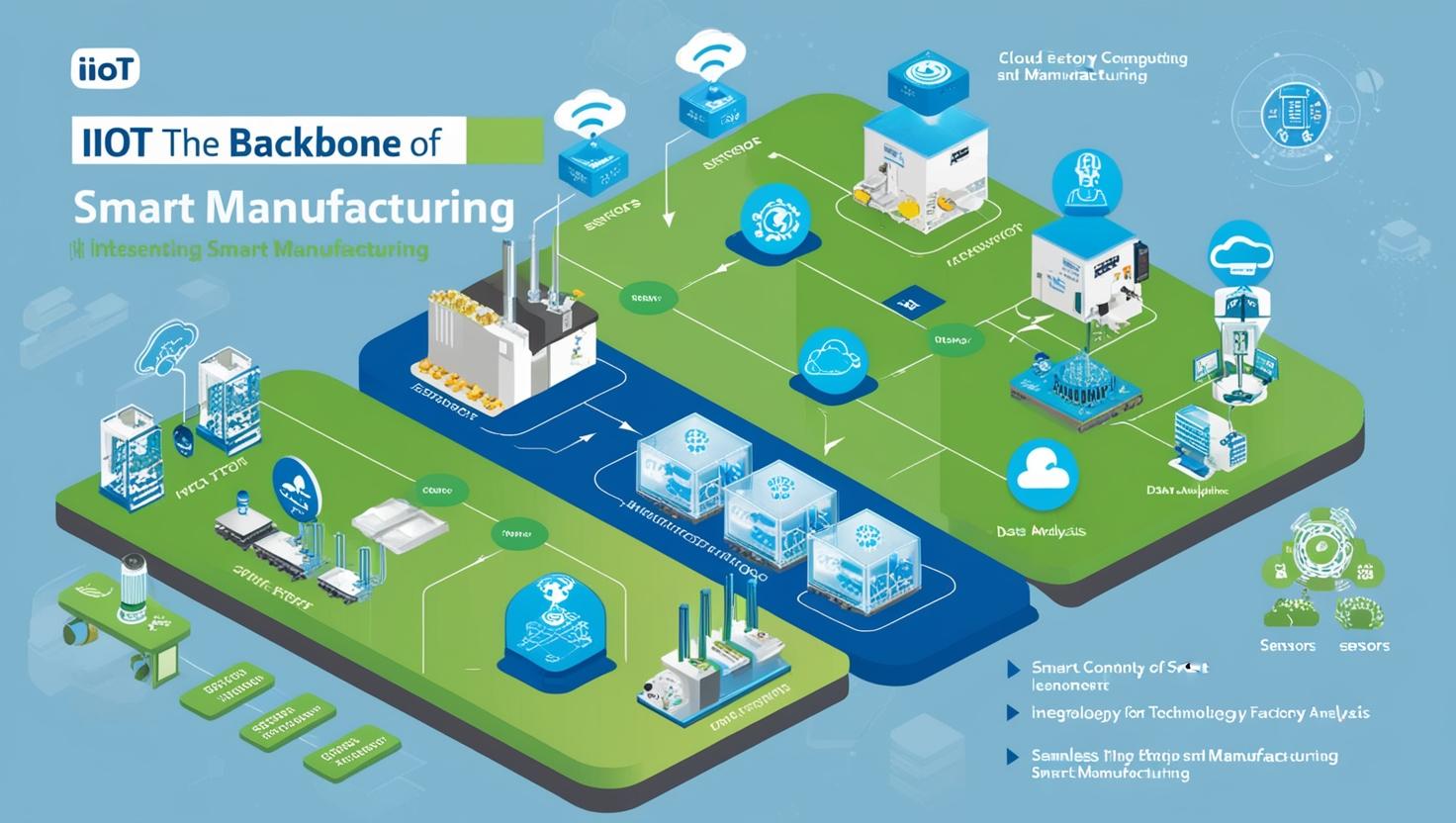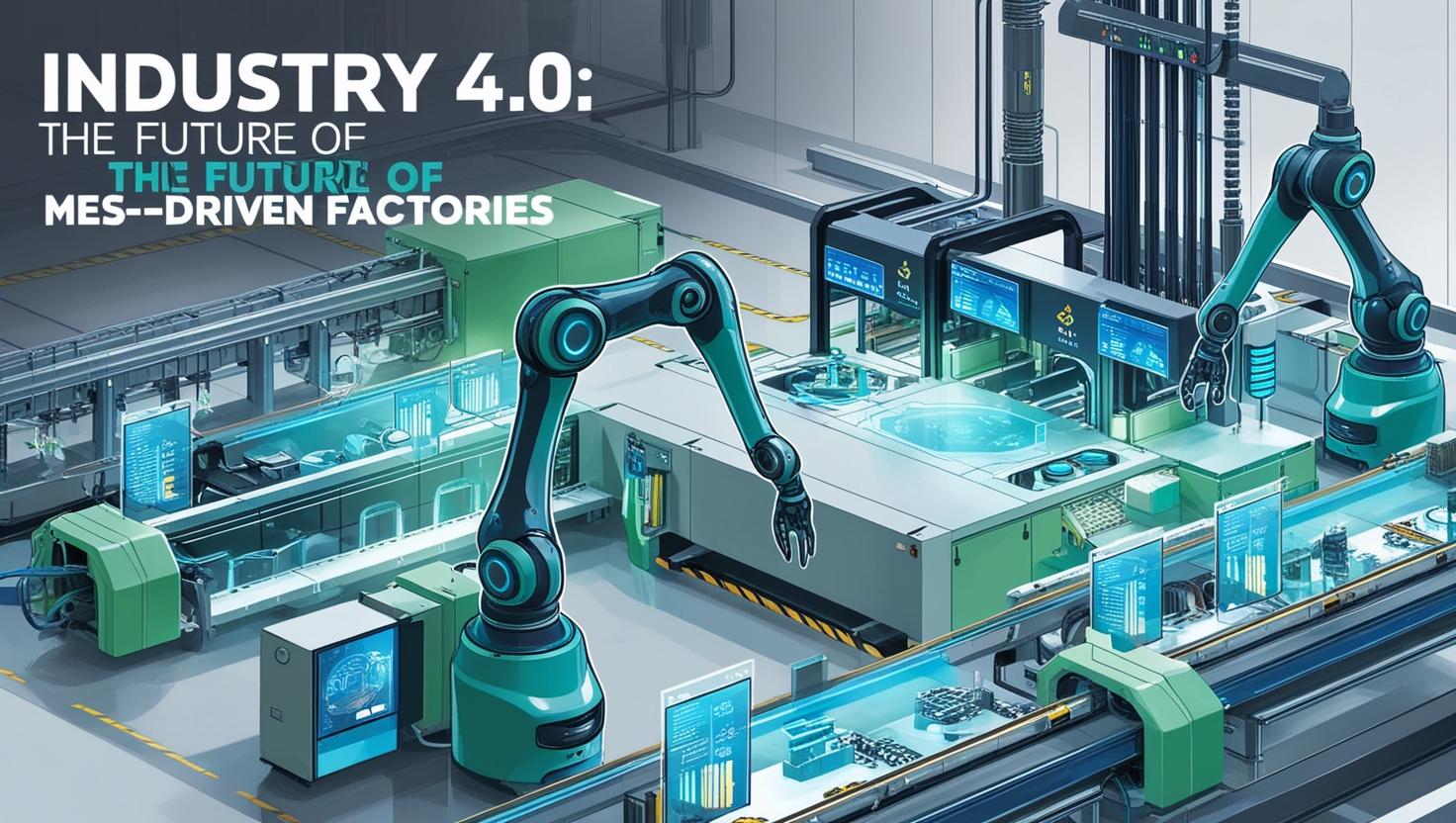How MES is Transforming American Factories: The Role of AI, IIoT, and Industry 4.0
In the rapidly evolving landscape of American manufacturing, the integration of Manufacturing Execution Systems (MES) has become a game-changer. MES, combined with Artificial Intelligence (AI), the Industrial Internet of Things (IIoT), and Industry 4.0 principles, is transforming traditional factories into highly efficient, data-driven production hubs.Explores how MES is revolutionizing U.S. manufacturing and paving the way for smarter, more responsive factories.
The Rise of MES in American Manufacturing
Manufacturing Execution Systems act as the digital backbone of modern factories, providing real-time monitoring, data collection, and process optimization. In the U.S., industries such as automotive, aerospace, pharmaceuticals, and consumer goods are increasingly adopting MES to enhance productivity, reduce costs, and meet stringent regulatory standards. The demand for MES is growing due to its ability to bridge the gap between enterprise resource planning (ERP) systems and shop-floor operations.
The Role of AI in MES
Artificial Intelligence (AI) is a key driver of MES advancements. AI-powered MES enables predictive analytics, allowing manufacturers to anticipate equipment failures before they happen. Machine learning algorithms analyze historical production data to optimize scheduling, improve quality control, and minimize downtime. AI also enhances decision-making by providing actionable insights, enabling factory managers to optimize workflows and resource allocation in real time.
IIoT: The Backbone of Smart Manufacturing
The Industrial Internet of Things (IIoT) plays a crucial role in smart Manufacturing by connecting machines, sensors, and systems into a unified network. This connectivity allows factories to collect and analyze vast amounts of data, enabling real-time monitoring and control of production processes. IIoT-powered MES enhances efficiency by automating routine tasks, reducing human errors, and improving traceability. Moreover, remote monitoring capabilities allow manufacturers to oversee operations across multiple locations, ensuring consistency and performance optimization.
Industry 4.0: The Future of MES-Driven Factories
Industry 4.0 represents the fourth industrial revolution, characterized by the digital transformation of manufacturing. MES serves as a cornerstone of Industry 4.0 by integrating AI, IIoT, and cloud computing into factory operations. Smart factories leverage MES to create flexible production lines, implement digital twins for virtual simulations, and facilitate seamless communication between machines and operators. This level of automation and intelligence enables U.S. manufacturers to remain competitive in a global market.
Benefits of MES in American Factories
-
Enhanced Productivity – MES automates and streamlines production workflows, reducing cycle times and improving efficiency.
-
Improved Quality Control – AI-driven MES detects defects early in the production process, minimizing waste and rework.
-
Cost Reduction – By optimizing resource allocation and minimizing downtime, MES significantly cuts operational expenses.
-
Regulatory Compliance – Industries such as pharmaceuticals and aerospace benefit from MES’s traceability and compliance features.
-
Real-Time Decision Making – Data-driven insights empower managers to make informed decisions, improving responsiveness to market demands.
The transformation of American factories through MES, AI, IIoT, and Industry 4.0 is revolutionizing the manufacturing sector. As industries embrace smart manufacturing, MES continues to play a pivotal role in enhancing efficiency, quality, and competitiveness. With continuous advancements in AI and IIoT, the future of MES-driven factories in the U.S. looks more promising than ever.
Manufacturing Execution Systems (MES) in 2025: Trends, Challenges, and Future Outlook
Visit Linkedin Page : MarketsandMarkets-Semiconductor
80% of the Forbes Global 2000 B2B companies rely on MarketsandMarkets to identify growth opportunities in emerging technologies and use cases that will have a positive revenue impact.
- Food Packaging Market Size Set for Strong Growth Through 2030 Amid Rising Demand for Convenience Foods
- Fertilizers Industry Set to Grow at 4.1% CAGR Through 2030
- Leading Automated Guided Vehicle Companies 2024: An In-depth Analysis
- CHARGED UP: SHIFT TO E-MOBILITY AND THE EVOLUTION OF TRANSPORTATION
- Global Automotive Market: Predictions For 2024






